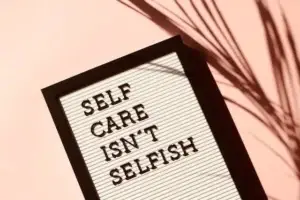Soft skills can often make the difference between success and failure in the workplace. They are the intangible yet highly sought-after qualities employers look for in job applicants. In today’s competitive job market, having strong soft skills is essential to standing out from the crowd and making a positive impression on employers. If you’re looking to develop your soft skills and give yourself an edge, several key strategies can help. With the right approach and dedication, you can improve your soft skills and become the top candidate for any job.
In 2012, I became the youngest manager at the University Hospital of the West Indies (UHWI). This was a pivotal point in my career, which laid the foundation for my leadership development. As a new manager, one of my biggest discoveries was that people needed more than instructions. As I built my team, it became evident that my knowledge and skills needed to be improved to operate a department effectively and certainly not even close to the bar when it came to serving customers. More than technical expertise is needed to ensure success in today’s modern workplace. In fact, it’s been found that soft skills, also known as people skills or interpersonal skills, are increasingly important for achieving success in both personal and professional settings. These skills include empathy, kindness, communication, collaboration, and emotional intelligence, which are critical for building strong relationships. For leaders, soft skills are even more essential for building trust and fostering a positive work culture. According to the World Economic Forum, emotional intelligence and social skills will be among the most important skills for leaders in the future of work. This is because soft skills allow leaders to connect with their teams deeper, understand and address their needs, and create a supportive and inclusive environment where everyone can thrive.
What are soft skills?
Soft skills are the specific skills that drive business outcomes yet often go overlooked. They are non-transferable skills that are not part of a job description and don’t necessarily appear in the skills test results. They are the ‘people skills’ employers want but don’t always come without a price. The most important soft skills for job seekers to focus on are communication, collaboration, and critical thinking, with emotional intelligence, often referred to as EQ.
Importance of developing soft skills
According to research, employers are more likely to hire and promote individuals with strong interpersonal skills. If you can demonstrate these skills, you could have the edge over other job seekers. The bottom line is that you’ll get hired and promoted more quickly. You’ll also be able to navigate workplace relationships better, build strong teams, and improve your work-life balance. With strong, soft skills, you’ll be better positioned to negotiate salary and promotions, manage your time, and effectively solve problems. Strong soft skills will allow you to excel in any career, regardless of industry. You can use these skills to improve your performance, increase productivity, and gain a positive reputation at work.
Benefits of having strong soft skills
- Better collaboration: Strong communication skills and working well with others are essential for effective teamwork. When your team members feel comfortable and can collaborate well, they are more likely to put in their best effort — and that effort will be reflected in the quality of their work.
- Improved problem-solving skills: Not only do strong, soft skills provide better communication and collaboration, but they also boost problem-solving skills. Problem-solving skills are essential for any team and are one of the few soft skills that are also quantifiable. You can measure how efficiently you solve problems and rate them on a scale.
- Better working relationships: When you have strong interpersonal skills, you’ll be better equipped to handle all types of relationships at work — from your direct manager to the HR team. You’ll be able to handle confrontations and difficult conversations more effectively.
Strategies for developing soft skills
- Practice active listening: This can improve your communication and critical thinking skills. It’s not as simple as hearing what someone has to say — it’s being fully engaged and listening with the intent to understand. When you practice active listening, you’ll be able to build stronger relationships and better problem-solve with your team members.
- Enhance communication skills: To improve your communication skills, you’ll want to ensure you’re speaking up in meetings, handling email appropriately, and delivering your messages effectively. You can consciously improve your communication skills through various methods, including using different communication channels, preparing for meetings, and using your tone and body language.
- Develop problem-solving skills: You can improve your problem-solving skills by regularly reflecting on situations when you successfully solve a problem. Think about what you did and why you chose that approach. You can also regularly participate in problem-solving exercises, like brainstorms.
Become self-motivated
Strong soft skills are often associated with positive traits like empathy, trustworthiness, and confidence. They can help you to become self-motivated, which is an important trait in any workplace—being self-motivated means having the drive and determination to achieve your goals. Strong soft skills can help you be more self-motivated because you’ll be less likely to be held back by distractions or a lack of motivation. You’ll be more likely to work toward your goals and achieve success.
Examples of soft skills in the workplace
- Sales: Building strong customer relationships is essential for sales reps, as it can help them close deals and earn more money. Thinking critically and creatively is also important, as these skills will help reps develop new ideas or solutions to help customers solve problems.
- Nursing: Nurses must have strong communication skills to care for patients effectively. They must also be able to collaborate with other healthcare professionals to create a well-rounded patient care plan. Critical thinking skills are also important for nurses, as they must be able to problem-solve and come up with solutions for challenging situations.
- Finance: Finance professionals must be able to solve problems and come up with new ideas for increasing revenue. They must also be able to collaborate effectively with other departments and departments beyond their own.
Developing soft skills isn’t easy, but it is worth it. And it’s not something that can be done in a week or a month. It takes time, energy, and focus. It is a process, and you will not achieve results in a day. The most important thing you can do is be patient with yourself and know that you are growing both in your career and as a person.





